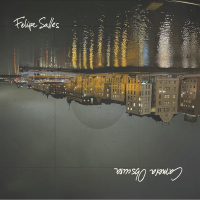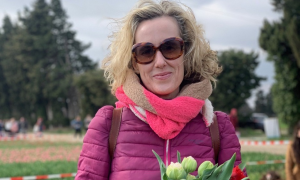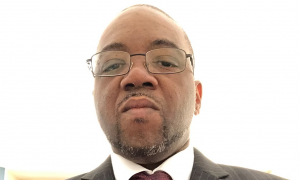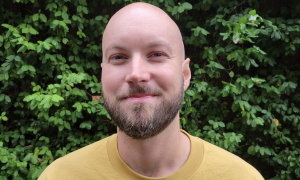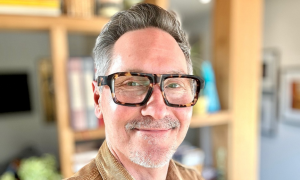Home » Jazz Articles » Chats with Cats » The Festival Presenters: Rochester's John Nugent and Marc Iacona
The Festival Presenters: Rochester's John Nugent and Marc Iacona

Courtesy Tom Flint
Our motto is 'It's not who you know, itЎҜs who you donЎҜt know...' We give people a pass to go experience music theyЎҜve never heard... and pretty soon theyЎҜre digging something they never thought they would ever hear. Then weЎҜve done our job.
—John Nugent
About John Nugent
John Nugent is a musician and producer who has contracted and tour managed more than 1,100 festival performances by 40 special projects/tours for established American artists including The Vanguard Jazz Orchestra,
Maria Schneider
composer / conductor
Ella Fitzgerald
vocals1917 - 1996

Smithsonian Jazz Masterworks Orchestra
band / ensemble / orchestraNugent graduated from St. Francis Xavier University with a diploma in Jazz Studies, attended the Banff School of Fine Arts, and then embarked on a four-year stint in jazz studies at North Texas State University. He has performed with a plethora of well-known musicians and entertainers including Ella Fitzgerald,

Tony Bennett
vocals1926 - 2023

Rosemary Clooney
vocals1928 - 2002

Buddy DeFranco
clarinet1923 - 2014

Clark Terry
trumpet1920 - 2015

Mel Lewis
drums1929 - 1990

Jim Hall
guitar1930 - 2013

Stevie Ray Vaughan
guitar1954 - 1990
About Marc Iacona
Marc Iacona is a music festival producer and entrepreneur. A lifelong Rochester, New York native, he is CEO & President of Simcona Electronics Corporation, and CEO of Quadristi, LLC and Spectrum Custom Wire & Cable Manufacturing, LLC.As an established patron of the arts and the community, Marc is dedicated to philanthropy and helping to build upon Rochester's creative arts scene and strengthen its economy. Marc currently serves on the Eastman School of Music's Dean's Advisory Board and M&T Bank's Advisory Board. He has served on the Board of Directors for the Rochester Philharmonic Orchestra and participates in the Community Education Division Jazz Studies program at the Eastman School of Music and is proud to have Family Scholarship Foundations at St. John Fisher College, Nazareth College, and Eastman School.
Marc's mission in life is to create a positive impact in everything that he does. In addition to producing the jazz festival, he invests in start-up companies that will elevate the presence of Rochester and create a positive economic impact.
All About Jazz: It's amazing you guys have built this enormous festival in a region without a big metropolis close by. How did you make that happen?
John Nugent: Well, I came here originally, as a musician and an educator who was producing mainly in Europe into 1999 and 2000. At the time, I was with

Jon Faddis
trumpetb.1953
Here we are 20 years later and, I don't know, 12,000 or 13,000 concerts in.
All About Jazz: Wow, congratulations.
JN: Thank you. It's a team effort. We have a team of people who work with us, the community has embraced us, and government and corporate support has helped us propel our vision. I'll let Marc speak to how we've developed it over the years.
Marc Iacona: Yeah, I think you mentioned something that we're a third-tier market. You're spot on, but we are a highly educated arts community. There's a lot of technology here and had, at one time, a huge manufacturing base that's kind of gone away. But, from a technical and educational aspect, the community actually does know its stuff. We've heard the question before, "why Rochester?" Well, why not? We have a school of music. There are a lot of critics but the people that know the arts community here, especially the music, really came to appreciate what was happening around year five.
In the beginning, we weren't really received in the way I saw it when I first met John. I had dinner with him and he would say that this is something that could be really unique for us because of the diversity of the programming. But, the people needed to get it. I think what happened is that we started to get momentum because people started to talk within the industry and I think a lot of that was helped by musicians speaking about the way they were treated as well as the way the community embraced them during performances.
This is not a jazz festival that you come to in the club pass series, sit down and talk to people, and the music is part of the background. They're really here to hear the musicians and what they have to say. Then, they get to interact with them afterwards. That's the cool part about our festival and how the club pass series works. There is a personality that John programs with every venue that we have. It works. I'm glad that, in a way, there's other people that do what we do but there's no one that emulates it exactly the way we do it. So that's kind of cool. You can't patent this stuff. You can make your mark in the industry.
All About Jazz: Can you tell me about the club pass series? It's amazing to me how you're able to offer these big name shows for free. How do you subsidize that?
JN: We had a pass in 2002 and, when we first started, there were seven club pass venues. We offered a ticket for 25 concerts for $25. That's a dollar a concert in the first year. In the second year it was 50 shows for $50. Then, 75 shows for $75. Now we have a pass where you can access 11 venues over 9 days with capacities from 250 to about 650 people. There are no reserved seats, it's a pass that you wear around your neck to buy a ticket. It's $244 for 9 days. That's the highest it's ever been. It's increased to that price this year but it's a ridiculously low price value when you can hear established veterans and emerging artists. I bill it as, "it's not who you know, it's who you don't know." It's all about the music first and foremost. We are inundated by emerging artists. I received no less than six or seven hundred proposals in the last month
There's kind of a methodology. I just don't program anybody anywhere for the sake of programming a band. It's programmed with a purpose, with a sound, and with a style. There's so many genres in creative improvised music especially: acoustic jazz, you know, straight ahead; more avant-garde European ECM style; the groove stuff; and people coming from all different angles. So, we've developed an identity and I kind of stick with that identity in how I program.
The sad part is that it's impossible to book everybody. It's just the nature of the animal in this business that young artists are deserving of a stage. It's a competition, almost, for finding a spot. That being said, though, the pass system is a value ticket so the audience gets to go to as many concerts as they want. The artists show up and they have a packed venue. In traditional concert promoting, it's hard tickets for a small venue like a club. We don't do that here. We just let people go where they want. It's first in, first served. You leave and one seat is empty so that another person can go in.
To go with that we have our free series. Our free stages on our Jazz Street and East End in open-air concerts. Marc can talk about how we are able to make those big free concerts happen.
MI: So, there's a strategy that we've had from year one. People make a comment like, "well, I really don't like jazz." Most of those comments come back from people that really don't understand it and the different genres within jazz. So the strategy would be to get them to come down and hear some southern rock, some r&b, some funk, some pop and you provide that for free. If they wander into one of the club pass venues, they don't have a club pass, but they pay you 30 bucks to get in and all of a sudden they walk out and say things like, "I didn't know that jazz musicians were that young. I didn't know that jazz sounded like this." The next thing you know they're downloading something and they buy a club pass.
Our goal is to get younger people to start investing in the club pass because we have something to say. We want this art form that is America's to perpetuate. The way the free music happens is mainly from government support. We have some corporate sponsors that take care of the club pass series and headliners that we ticket. We do have some sponsors that want to be involved because they want to be involved in the free element, giving back to the community, and quality of life in that experience. But, most of it does come from the support of the government. They understand there's an economic aspect as well as bringing the community together; diversity.
This year was a watershed of diversity for us in terms of younger people and children of families coming down. The diversity was off the charts in terms of our outdoor, open-air free concerts. That takes a village in terms of people in government really understanding the effect that has but it has to happen every year if you want to grow. It's a constant conversation piece that we have to have. But, that's how that gets done.
All About Jazz: Yea, to your point, I can't tell you how many times I've heard people say at my own gigs things like, "oh, I didn't think I liked jazz but I like this." But that's because they just haven't been exposed to it so I completely agree with your point. John, I'd like to know a little more about your identity in how you program as you mentioned earlier. Do you program things that pique your own interest, things that you think your audience wants, or is it a combination of both?
JN: A combination. Look, I'm a saxophonist. I've made ten of my own records and have toured with the Woody Herman Orchestra. I lived in Brooklyn for a long time, subbed in the Vanguard Orchestra, played in the Maria Schneider band, did a lot of big band playing, toured in

Al Foster
drums1944 - 2025

Bruce Barth
pianob.1958

Doug Weiss
bass, acousticInstincts are a very big part of my programming and how I put artists where I put them. The venues that we have to work with here are interesting and don't all sound the same acoustically. If you clap your hands in one venue it'll sound completely different than it will in another so I'm not going to put one artist in there that I would put in another venue. There's no scientific method to it but it's music that I like and music that I know our audience likes.
It's been trial and error. Have I hit a homerun every time by putting an artist in the right venue? I don't think so. But, my partner and colleagues would agree that, overall, we've been as one media outlet described "jazz savvy cubed," whatever that means. What does "savvy cubed" mean? I think CNN said that if I'm not mistaken.
It's a broad scope of creative improvised music in a melting pot with a little bit of established artists like

Kenny Barron
pianob.1943

The Cookers
band / ensemble / orchestra
Billy Hart
drumsb.1940
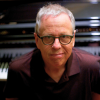
Kenny Werner
pianob.1951

Norah Jones
pianob.1979

Esperanza Spalding
bassb.1984

Benny Golson
saxophone, tenor1929 - 2024

Jim Hall
guitar1930 - 2013
That's where we're coming from. We try to give people a little bit of everything.
All About Jazz: What are the biggest challenges of presenting a jazz festival as opposed to other types of festivals?
MI: I'll come from the angle of what are the challenges we don't have that I think other festivals may have? We're really fortunate and blessed to have a team that wants to be part of it every single year. So, there are individuals that have been with us from the beginning. Jane, in our office, does a lot of advancing with the artist as well as our transportation. Some of the individuals that we outsource to on our team also have people around them that just want to be part of this every single year. These last two years have been really weird for them because they actually had it on their calendars.
So, we're not at a loss for people that want to be involved in this festival which is really, in my opinion, unique in some ways. We have a volunteer network that is really robust. Then, there are people that want to support it. So, the challenges we don't have that other festivals have is that nucleus of a team that really wants to be part of it every single year. I think it's because we value them and we don't take them for granted.
John and I are programming this thing in the months of September, October, and November because of the commitment there and the support that we have. John was talking to colleagues at a conference in Canada and these individuals are saying that they don't even know if they can start programming until 90 days before their festival.
Financing, especially now, is going to be more challenging. I'll let John talk a little bit about the acquisition of talent at the national and international level. But then it just comes down to different kinds of guidelines that you have to follow. I'm not talking about Covid guidelines, I'm just talking about things that can restrict you from doing the things you really want to do, that you know the community would love. Those are things that we have to keep insulated and not transparent to our community otherwise they become very concerned. Number one is having a great team but then having the financing that's there. The last thing I'll say before I let John talk is that, because of the track record of programming the club pass series and that we do what we say we're going to do every year, we have people buying passes months in advance without even knowing who's coming to play.
All About Jazz: Sounds like there's a lot of trust there.
JN: There is a lot of trust but one of the challenges, as you asked about, is international visas and work visas for foreigners. We had a UK series here. I think in our history, if you added it all up from the first year to now, we've had probably about 150 groups from Europe and Scandinavia that have been to our Festival that would probably never come to the United States of America without being invited to perform as part of our Global Jazz Now or Made in the UK. We've gone after the visas Covid threw a wrench in all that with visas that had been secured and went by the wayside. We don't talk about that in our press releases. I go to London and the ILMC Conference to deal with the PRK, the UK performing rights society, Arts Scotland, Ireland, and different countries to secure these artists and listen to who's interpreting the American art form in their style overseas.
So, that's a big part of the challenges of delivering an event. They show up at the venue here and they have 500 people sitting in the seats. The'yre wondering, "how does that happen?" because they can't get 500 in their own country.
That's the beauty of what we do and we're very proud of it. Covid has made it a little more challenging and the business is changing with artist agencies and management companies. So many different boutique agencies have merged. I'm not sure how familiar you are with that. Paradigm is no longer. It's now Wasserman. A lot of guys who worked with WME are now with Mint Talent Group. There's been a bunch of mergers and changes in the industry, they're all trying to find work, and it's not getting cheaper to do what we do. The challenges are putting a ten-thousand-piece puzzle together and having it look really good.
All About Jazz: Clearly you guys work together great, and I love how you pass off questions to each other. Do you two have clearly defined roles or do they overlap?
JN: I would say yes. I'm the Artistic Director and Marc is the Executive Director. He's responsible for our sponsorship development and our production.
MI: We collaborate. You know, John will always want input on someone that he's going to book or I'll say, "I'm really interested in this artist." We'll always talk and collaborate on that. The only time that John and I really have a problem is when he doesn't book enough trumpet players in the club pass series [laughs].
JN: We had about 9 of them last year [laughs].
All About Jazz: Do you mind if I ask you a little bit about Covid? How have things changed since then?
JN: We didn't have a festival in 2020 or 2021. This year, we found that people were pretty anxious to get out. There were still some that were concerned about coming out but I think that we're on the edge of the end of the pandemic. But, who knows with variants and stuff like that.
We followed all the guidelines and recommended people mask up if they felt uncomfortable but never forced anybody. In New York State there weren't any mandates this past June. We saw about, maybe, five percent of our patrons wearing masks. Most people are vaccinated or probably had Covid. I had it.
All About Jazz: Did things feel back to normal this year?
JN: Marc and I looked at each other a number of times during the festival and said, "this is weird. It just feels weird." But, we hadn't had an event in two years. We should be going into our 22nd year but this is our 20th festival coming up next June. So, it just felt a little odd. Not having the Eastman Theater series that we had been doing since the beginning and not having any ticketed reserved seat headliner shows indoors was a little different. We had all of the free shows outside on what we call the Parcel 5 Midtown Stage which is 10,000 capacity. But it was well-attended and everyone seemed quite jovial. The attitude was pretty positive everywhere. Wouldn't you agree Marc?
MI: Yea, I think John's right. It just felt weird or odd. I use the word "cadence." Our cadence was off with everyone. Not necessarily the programming but we pride ourselves on starting things on time. I think that our cadence with some of our team was off. Maybe you can say because of supply stream structures and not getting set up on time. Communication was just kind of weird. Certain aspects that are the non-sexy part of our festival, that people don't need to know about but need to get done, was where it was off a little bit.
I will say this. I was around a lot of the main production outside this year because we were heavily programmed with a lot of free stuff at what we call Parcel 5. Even the tour managers and some of the production team that came with them you could tell weren't regulars because some cats are not doing it anymore. So there was non-communication in advancing. Also, you have some things on tech riders that people are usually a bit more loose and flexible with. Certain people that normally don't do this were really militant on certain things and that just kills the vibe.
So, that was happening more. I think you chalk it up to two years of not doing this thing and hopefully it just gets better.
All About Jazz: You referenced Eastman earlier and I wanted to ask you about that. Marc, I was reading that you are associated with Eastman School of Music. Could you tell me about the relationship that the festival has with the school?
MI: One of the things that John and I were on the same page with right from the beginning was giving back. John was very understanding of it because he was once a recipient of a scholarship to play here in the States. So, giving back was big for us as an element of the festival. With Eastman, we have a Jazz Studies scholarship that is awarded each year to an incoming musician. We've been supporting that with well over $500,000 in an endowment and a scholarship that is, kind of, combined.
JN: A lot of the students who have been recipients of those scholarships have come back with their own bands like

Mike Cottone
trumpetb.1985

Nick Finzer
tromboneb.1988
All About Jazz: As a musician myself I'm always curious what advice you guys have for musicians who are trying to get a gig or just want to get noticed.
JN: There's no blueprint for success in the music industry but one piece of advice I can give, after seeing all styles of presentations and how people approach the business side of artistry, is don't be too aggressive when you're presenting yourself to promoters or people who buy talent. The less you say the better because the music does the speaking for you. There's not much else to say. The music has to talk first. That being said, there are a lot of pop artists who aren't saying a whole lot musically but are being promoted by people with power.
There's a difference in the emerging artist scene in this country. I get unsolicited materials non-stop. EPKs are very crucial. When sending links to your music, send us something that's completely representative of what you're doing or what you're going to do when you come here. Some artists I've booked, because of things I've listened to, show up and they're playing something that is not at all what they presented to me and it didn't fit the venue. I had to have a chat with them and say, look, this music would not have been programmed here. So, that's one little thing.
The more subtle you are and the more talents you have, the more likely you're going to be able to get work. The subtle approach works with me but I can't speak for other promoters. I've seen every type of approach there is and the ones that are humble and subtle are the ones that get my attention.
All About Jazz: What have been some of your favorite performances over the years?
JN: I've certainly heard Marc Iacona ripping a few solos .... [laughs]
Obviously, there have been hundreds and hundreds of incredible performances. You're a guitarist. Having Jim Hall here was pretty special and from that, the extreme opposite, someone like Jeff Beck who played at Eastman. He sold out two complete shows for us. That was ridiculous.
There's so many of them it's kind of unfair to say. The high level of artistry is incredible. There was a pianist here a bunch of years ago who passed away tragically,

Esbjorn Svensson
piano1964 - 2008
The funny thing is, Marc and I don't get to hear a whole lot of stuff because we're running seventeen venues. I have a Vespa and he's in a Kubota and we're just bombing around taking care of so much. We're working hard. They're sixteen and seventeen hour days, morning until dusk.
The jam sessions have been pretty legendary at our hotels. A lot of people have sat in and played.

Wynton Marsalis
trumpetb.1961

Joe Lovano
drumsb.1952

Chris Potter
saxophone, tenorb.1971

Kurt Elling
vocalsb.1967
MI: I remember the time I came into the jam session and John's up there playing. I see who's playing behind him but he has no idea because he's ripping a solo. He's just going off and has no clue who's behind him. We have a regular rhythm section with

Bob Sneider
guitar
George Benson
guitarb.1943
JN: He actually messed up the changes on the bridge. He even looked over at me to give me a look like, "ahhhh.... Sorry about that" [laughs]. That was fun. That was in the second or third year I think.
There have been some wonderful moments. Looks, what is the essence of a festival? I talked to

George Wein
piano1925 - 2021
All About Jazz: Like a hangover?
JN: It's a drug man. Music is a drug. It's dopamine. It elevates your senses and your feelings. There's an electricity you can't quantify because you can't touch it. It's in the air. It's in your spirit. It's in your soul. It's in your heart. It's in your feet. It's everywhere and makes you feel good. And that's why we do what we do.
All About Jazz: It must be an amazing feeling knowing that you guys made that happen.
JN: It's very rewarding. Certainly, there's the battles we have to face like any promoter. The unfortunate side of it is you need the revenues to be able to do what you do to get to that state, But the combination of the two, when they work out together, is pretty explosive and fun. That's why we keep doing it.
All About Jazz: This is my last question. Thank you guys so much for your time, I really appreciate it. Any plans for this festival or any other endeavor?
MI: Short-term is that we're already in motion for 2023. What that looks like, you know, you can try to be consistent but, unfortunately, this year we had a government grant that will not be there next year. So, we have to see what that looks like and we're appealing to some people. Short term, the festival will go on and, in my opinion, the people that invest in the club pass will not be disappointed with the consistency of what's happened in the last 19 years.
Long term, our desire to have this festival perpetuate for the next generation coming in and the relevance of the festival to stay at the level it is if not grow. Our whole thing is that we don't want to be bigger, we want to be the best at what we do because bigger means a bigger footprint and bigger budget. We want this to perpetuate and that means we have to have conversations along the way about what that means. How do you achieve perpetuation? The music and programming opportunities will always be there but what is this festival going to look like 10 years from now at our 30-year anniversary? If we're still around, what does that look like and who do we bring in? Again, it's perpetuation. We started something and we don't want to see it be like a shooting star or a meteor that comes by and all a sudden it's gone. Our season right now has been 20 years. We want that season to last many more years.
JN: Marc and I have a really great relationship. We have great respect for each other. Like any business, we have disagreements and we talk it through and understand each other. Sometimes we don't understand each other but we figure it out and that's the beauty of a partnership.
I'm Canadian by birth, from a fishing town in Eastern Canada. My grandfather gave me a saxophone when I was seven and said, "go to New York" [laughs]. Because he used to go down and import pianos from Steinway Hall. So I came at it from that aspect. Marc has been in New York and has been around music his whole life through all the history here, the Mangione family, has quite an Italian-American history in Rochester for music, the Eastman School of Music. So, artistically, he's had a better education than I have when it comes to the American art form.
We just love what we do and we love working with each other and putting it on and having great people around us including the people in the office, all of the volunteers, the crew, and everyone who supports us.
We're one of a few high-end festivals. You think " data-original-title="" title="">Newport Jazz Festival All Stars, " data-original-title="" title="">Monterey Jazz Festival On Tour, Pittsburgh also has a great festival. I like to think we have one of the more well-rounded events in the country that caters to many different tastes. We try to give something to everybody.
All About Jazz: It seems to be working so congratulations guys. Is there anything that you want to add that maybe I didn't ask about?
JN: Again, our motto is "It's not who you know, it's who you don't know." That's where we come at it from. Why do you buy a concert ticket? Traditionally it's because you know the artist. We do reverse psychology concert promoting. We give people a pass to go experience music they've never heard and then they get turned on to new sounds, new styles, and pretty soon they're digging something they never thought they would ever hear. Then we've done our job.
Tags
Comments
PREVIOUS / NEXT
Support All About Jazz
 All About Jazz has been a pillar of jazz since 1995, championing it as an art form and, more importantly, supporting the musicians who make it. Our enduring commitment has made "AAJ" one of the most culturally important websites of its kind, read by hundreds of thousands of fans, musicians and industry figures every month.
All About Jazz has been a pillar of jazz since 1995, championing it as an art form and, more importantly, supporting the musicians who make it. Our enduring commitment has made "AAJ" one of the most culturally important websites of its kind, read by hundreds of thousands of fans, musicians and industry figures every month.
Go Ad Free!
To maintain our platform while developing new means to foster jazz discovery and connectivity, we need your help. You can become a sustaining member for as little as $20 and in return, we'll immediately hide those pesky ads plus provide access to future articles for a full year. This winning combination vastly improves your AAJ experience and allow us to vigorously build on the pioneering work we first started in 1995. So enjoy an ad-free AAJ experience and help us remain a positive beacon for jazz by making a donation today.
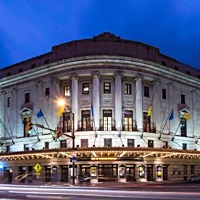
Rochester
Concert Guide | Venue Guide | Local Businesses
| More...


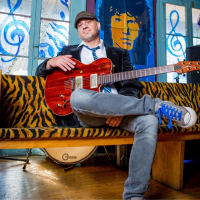



 Buy Now
Buy Now





